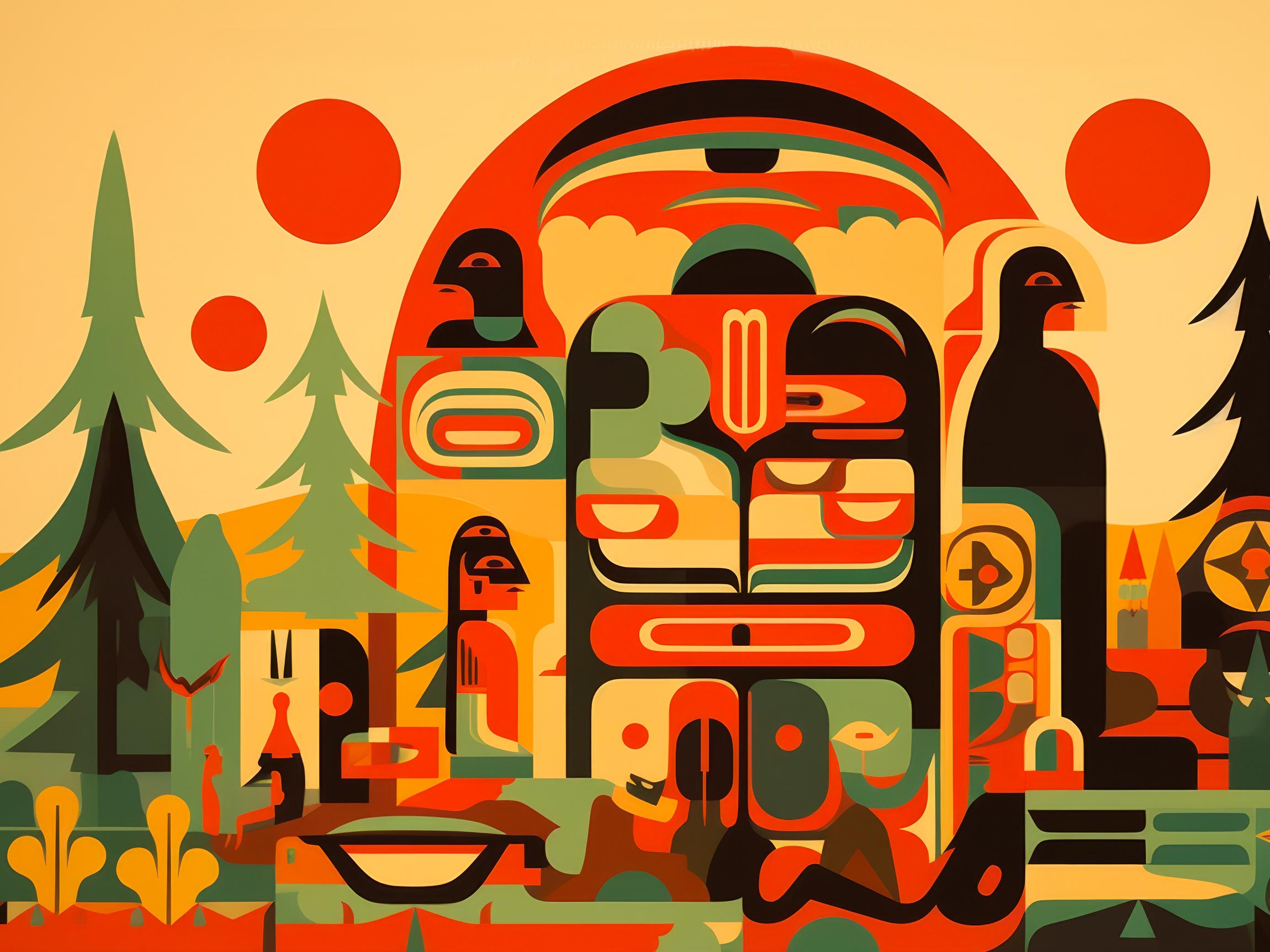In the world of scientific progress, there exists a profound interconnectedness between the traditional wisdom of Indigenous communities and the cutting-edge innovations of modern biotechnology. This synergy, rooted in a deep understanding of nature and its intricate systems, has the potential to reshape the landscape of biotech research and development, leading to sustainable solutions that benefit both the environment and society at large.
Honoring Tradition: The Rich Tapestry of Indigenous Knowledge
Indigenous communities around the world have for centuries cultivated a profound intimacy with the natural world, meticulously observing the ecosystems that sustain their lives and livelihoods. Passed down through generations, this accumulated wisdom forms the foundation of their cultures, guiding practices and principles that maintain the delicate balance between humanity and the environment. From herbal remedies that heal ailments to agricultural techniques that harmonize with the land, Indigenous knowledge encompasses a vast repository of insights that has sustained their communities for ages.
Forging Collaborative Paths: Biotech and Indigenous Wisdom
In recent years, the realm of biotechnology has begun to recognize the immense potential that lies in the integration of Indigenous knowledge with scientific exploration. Collaborative initiatives have emerged, seeking to bridge the gap between traditional practices and cutting-edge biotech innovations. These partnerships acknowledge the value of combining ancient wisdom with modern tools to address pressing global challenges, such as food security, environmental conservation, and healthcare accessibility.
Indigenous Ingenuity: Elevating Biotech and Science Through Traditional Wisdom
The convergence of Indigenous knowledge with modern biotech and scientific advancements has yielded a tapestry of innovation and insight, enriching our understanding of nature, health, and sustainability.
Dr. Mary Yellow Horse Brave Heart (Lakota Sioux): Dr. Brave Heart is a clinical psychologist known for her groundbreaking work in Native American mental health. She developed the “Historical Trauma and Unresolved Grief” framework, which highlights the impact of historical trauma on the mental health and well-being of Indigenous communities. Her research has led to culturally sensitive interventions and healing practices that address the unique challenges faced by Native American populations.
Dr. Gregory Cajete (Santa Clara Pueblo): An educator and ethnoecologist, Dr. Cajete has focused on bridging Indigenous knowledge with ecological science. His work emphasizes the interconnectedness of nature and culture, particularly within Native American perspectives. Dr. Cajete’s writings on Indigenous science and education have contributed to a more holistic understanding of environmental stewardship and sustainability.
Dr. Katsi Cook (Mohawk): Dr. Cook is a midwife and advocate for Indigenous women’s health. She has championed reproductive justice and led initiatives to address health disparities in Native American communities. Her work has highlighted the importance of culturally appropriate care and has influenced policy changes to improve maternal and child health outcomes.
Dr. Robin Wall Kimmerer (Citizen Potawatomi Nation): A botanist and author, Dr. Kimmerer combines her scientific expertise with Indigenous wisdom to explore the relationships between people and the natural world. Her work emphasizes reciprocity and gratitude in human interactions with the environment. Her book “Braiding Sweetgrass” beautifully weaves together scientific inquiry and traditional ecological knowledge.
Dr. Myra Lefthand (A’aniiih): Dr. Lefthand is a public health researcher who has focused on addressing health disparities in Indigenous communities. Her research has examined the impact of environmental exposures on health outcomes and has contributed to efforts to improve health equity and access to healthcare services for Native American populations.
Dr. Robin Evans-Agnew (Suquamish): Dr. Evans-Agnew is a nurse scientist who has worked on projects related to environmental justice and health in Indigenous communities. Her research has explored topics such as water quality, community health assessments, and the intersection of traditional knowledge and Western science in healthcare.
Dr. Karletta Chief (Diné): Dr. Chief is a hydrologist whose research focuses on water quality and security in Native American communities. She has investigated the impact of mining on water resources and has advocated for the inclusion of Indigenous perspectives in water management decisions.
Dr. Debra Harry (Paiute Tribe): Dr. Harry is an advocate for Indigenous rights and environmental justice. She has worked to raise awareness about the impacts of toxic waste and pollution on Indigenous communities’ health and has been a vocal proponent of Indigenous-led environmental initiatives.
The Power of Ethnobotany: Unveiling Nature’s Treasures
One of the remarkable intersections between Indigenous knowledge and biotech innovation is found in the field of ethnobotany – the study of the relationships between plants and people. Indigenous communities possess an unparalleled understanding of local flora, recognizing the healing properties and potential applications of various plant species. This intricate knowledge has inspired biotechnologists to explore the therapeutic properties of traditionally revered plants, uncovering new sources of pharmaceutical compounds and bioactive molecules.
A Future of Collaboration: Biotech’s Responsibility
As we embark on a journey into the future, the responsibility of biotech professionals extends beyond the laboratory. It includes fostering meaningful relationships with Indigenous communities, acknowledging their contributions, and ensuring equitable partnerships that respect traditional knowledge. This collaboration has the potential to create a more holistic and compassionate biotechnology sector, one that values both scientific rigor and the wisdom embedded in cultural heritage.


